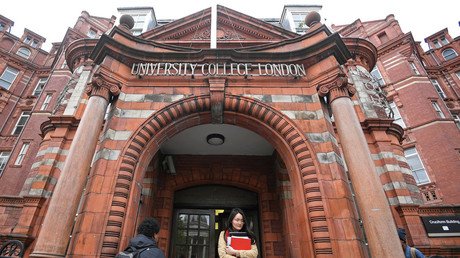‘I will suffer until the end of my life’: Japan’s forced sterilization victims speak to RT
Thousands of Japanese people who were forced to undergo sterilization operations could be in line for compensation following the discovery of records detailing the country’s controversial, decades-long eugenics program.
Conducted under Japan’s Eugenics Protection Law, the legal program ran from 1948 until 1996 and targeted people with hereditary diseases for forced sterilization surgeries and vasectomies. Now, as the scandal continues to shock the country, it seems some of those affected may have even been misdiagnosed.
Speaking to RT, the sister-in-law of one of the victims claimed her relative’s illness was not genetic but was brought about by an anesthetic treatment as a one-year-old child.
“The reason for her operation was because she had genetic mental weakness,” said Michiki Sato, whose name was changed to protect her identity. “But it's not true. When she was aged one, she got intellectual disability by anesthesia treatment and became a mentally-handicapped child.”
Sato also said that she learned through a Freedom of Information request that her sister-in-law had only been 15 years old at the time of the procedure. Genetic mental disease was the only listed reason for the sterilization. Attempts to access documents relating to her sister’s surgery were unsuccessful as the files were reportedly thrown away. “The evidence of the mutilation of my sister’s body was simply thrashed.”
“I think that the now defunct Eugenics Protection Law existed for the sole purpose to rid Japan of disabled people.”
Another victim, known as Ms. Ilzuka, spoke exclusively to RT, recalling the tragedy surrounding her forced sterilization. She said she was diagnosed with a non-generic mental illness in school. Being mentally disabled she was taken in as a caretaker to work at her teacher's house. There she was constantly “abused” by the teacher's wife.
One day the teacher lured the girl into the hospital under a false medical checkup pretext. Once there, the doctors used restraints and used anesthetics against her will. “When I woke up, I was thirsty,” Ms. Ilzuka recalls. “They told me not to drink any[thing]. That is all I remember.”
Returning home after the procedure, the 16-year-old at the time was told by her parents that she was fixed and could no longer have any children. “My father did not agree to the operation. My father was forced to sign documents by my teacher and welfare officers,” Ilzuka said.
Ilzuka explained the impact the sterilization had on her life. “I married and divorced and married again. My husband left me when I told him about the operation.”
“I know I will suffer to the end of my life. If only I could go back in time but I can’t.”
She called on the government to apologize and pay compensation to the many victims. Chief executive and psychologist at the Tokyo Council of Public Health center, Katsumi Yamamoto, echoed this sentiment and blamed the government. “The question is who is responsible for all of this? To me it’s the government’s fault – they executed the program, as well as the National Legislature which adopted the law.”
“The doctors were also responsible but, in a way, they were used by the government,” he added.
In around 16,500 cases, no consent was given for the procedures while some victims were aged as little as nine years old. Victims pursuing their medical records were told the documents had been destroyed.
A recent investigation by Kyodo News revealed that the records of some 2,700 people have been found in local government archives, a development which could open the door for victims who wish to pursue a compensation claim against the state.
Of these, 1,858 apparently underwent sterilization without consent, while six gave their approval. Consent was unclear in the remaining cases. The survey, however, found that records for nearly 90 percent of the overall 25,000 people are likely no longer maintained by the prefectures, having probably been destroyed.
Even after the law was replaced, the government neither apologized nor offered compensation to victims. Germany and Sweden had similar eugenics laws, but the governments there have apologized for the practice, paying compensation to the victims.
Last month, a woman in Miyagi Prefecture became the first to initiate a lawsuit against the Japanese government for her forced sterilization when she was a teenager, on grounds of mental disability. She is reportedly seeking 11 million yen ($101,000). However, she is just one of what is thought to be as many as 25,000 victims.
Meeting to discuss the issue, the United Nations Committee on the Elimination of Discrimination recommended that Japan provide all victims with access to legal aid and “provide them with compensation and rehabilitative services.”
Think your friends would be interested? Share this story!















